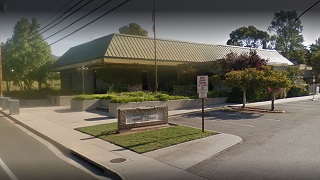IEEE Event 17 July 2019 - Professor Dmitri Strukov presents: Alternative Computing with Memristors

FREE EVENT
Location - Goleta Valley Library
500 N. Fairview Avenue Real, Goleta, CA 93117
6:oo PM - Complimentary Buffet
6:25 PM - Central Coast status
6:30 PM - Professor Strukov's Presentation
Date and Time
Location
Hosts
Registration
-
 Add Event to Calendar
Add Event to Calendar
Speakers
 Professor Dmitri Strukov of Electrical and Computer Engineering Department, UC Santa Barbara
Professor Dmitri Strukov of Electrical and Computer Engineering Department, UC Santa Barbara
Alternative Computing with Memristors
By now, there have been many demonstrations of resistive switching (“memristive”) devices based on organic, chalcogenide, transition metal-oxide and silicon materials and involving different physical switching mechanisms, such as phase-change transitions and modulation of the ionic concentration profiles by electrical and/or thermal forces. The conductance of properly engineered memristors can be continuously tuned with relatively large electrical bias, and retained, effectively indefinitely, when small stress is applied. Such analog nonvolatile memory functionality and extremely high device density achieved by lateral scaling and/or monolithical vertical integration enable many new exciting applications of memristors in neuromorphic and alternative types of computing.
In my talk, I will review several such applications based on metal-oxide memristors which were a recent focus of my group. This includes stateful material implication logic, which was originally suggested by Hewlett Packard Laboratories group. In our work, we showed that 3D version of this logic allows resolving Feynman grand challenge of implementing 8-bit adder in a volume smaller than 50-nm cube. I will also review our experimental work on memristor-based security primitives, in which we utilized device variations and their nonlinear I-Vs to demonstrate functionality and physical performance superior to those of conventional approaches. Finally, I will discuss applications of memristors in neuromorphic computing, outlining some of my group’s recent experimental work on mixed-signal firing-rate neural networks, which have a potential to greatly exceed conventional implementations in energy efficiency, speed, and density, and spiking neural networks, that allow for compact implementation of training algorithms in the hardware.
Biography:
Dmitri B. Strukov received the M.S. degree in applied physics and mathematics from the Moscow Institute of Physics and Technology, Moscow region, Russia, in 1999, and the Ph.D. degree in electrical engineering from Stony Brook University, Stony Brook, NY, USA, in 2006.
He is currently a Professor of Electrical and Computer Engineering at University of California at Santa Barbara. Prior to joining UCSB Dmitri worked as a postdoctoral associate, first at Stony Brook University (Aug. 2006 – Dec. 2007), and then at Hewlett Packard Laboratories (Jan. 2007 – Jun. 2009) on various aspects of nanoelectronic systems. His research broadly concerns different aspects of computation, in particular addressing questions on how to efficiently perform computation on various levels of abstraction. His current research focus is on hardware implementations of artificial neural networks with emerging memory devices.
Email:
Address:Santa Barbara, California, United States, 93106-9560

